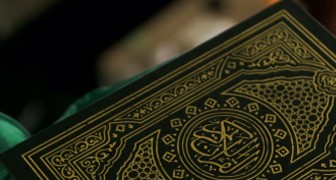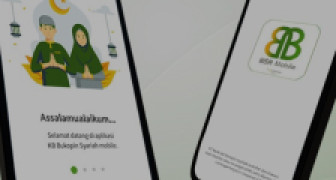Term
Terms in Sharia Banking
Ar - Rahnu
Is using goods that have property value (economic value) as collateral for a debt, so that the owner of the goods in question can take out the debt. Ar-Rahn also means pledge or pawn (pawn), namely a contract or guarantee agreement and is binding when the control rights over the collateral change hands. In this contract, there is no transfer of ownership of the collateral. Or in other words, it is a contract to hand over goods from the customer to the bank as partial or complete collateral for the customer's debt. Thus, the transfer of ownership of goods only occurs under certain conditions as an effect or consequence of the contract.
Hawalah
Is a customer transfer agreement to the bank to help the customer obtain cash capital so that he can continue production and the bank receives compensation for the receivable transfer service.
Ijarah
A rental agreement which gives the lessee the opportunity to use the goods to be rented in return for rental money in accordance with the agreement and after the rental period ends the goods are returned to the owner, however the lessee can also own the rented goods with the option of transferring ownership of the rented goods from the bank by the other party (ijarah wa iqtina).
Istishna
s buying and selling financing carried out between the bank and the customer where the seller (the bank) makes the goods ordered by the customer. Banks, to fulfill customer orders, can subsource their work to other parties.
Kafalah
It is an agreement to provide a guarantee/guarantee by the bank to the customer to guarantee the implementation of the project and the fulfillment of certain obligations by the guaranteed party.
Mudharabah
Is a collaboration between two parties where the shahibul maal provides capital while the mudharib becomes the fund manager where profits and losses are shared according to an agreement in advance.
Mudharabah al-Mutlaqah
Is a collaboration between two parties where the shahibul maal provides capital and gives full authority to the mudharib in determining the type and place of investment, while profits and losses are shared according to an advance agreement.
Mudharabah Muqqayadah
Is a collaboration between two parties where shahibul maal provides capital and gives limited authority to mudharib in determining the type and place of investment, where profits and losses are shared according to an agreement in advance.
Mudharib
Is a second party or a party other than the first party.
Murabahah
s an agreement agreed between a Sharia Bank and a customer, where the Bank provides financing for the purchase of raw materials or other working capital required by the customer, which will be repaid by the customer at the bank's selling price (bank purchase price + profit margin) at a specified time.
Musyarakah
Is a financing agreement between a Sharia Bank and a customer who needs financing, where the Bank and the customer jointly finance a business or project which is also managed jointly based on the principle of profit sharing in accordance with participation where profits and losses are shared according to an agreement in advance.
Nisbah
Is the share of business profits for each party whose amount is determined based on the agreement.
Salam
Is buying and selling financing where the buyer gives money first for the goods purchased whose specifications have been stated with delivery later.
Shahibul Maal
Is the first party.
Wadiah
It is a deposit from one party to another party, both individuals and groups, which must be safeguarded and returned at any time if the owner wishes. Is the first party.
Wadiah Yad adh-Dhamanah
It is wadiah where the recipient of the deposit can use the item entrusted with the permission of the owner and guarantees to return the deposit in full at any time, when the owner wishes.
Wadiah Yad Al-Amanah
It is wadiah where the recipient of the deposit is not responsible for loss and damage that occurs to the items entrusted as long as this is not the result of negligence or carelessness of the recipient of the deposit in maintaining the deposit.
Wakalah
It is a representation agreement between both parties (bank and customer) where the customer gives authority to the bank to represent himself to carry out certain work or services.
























